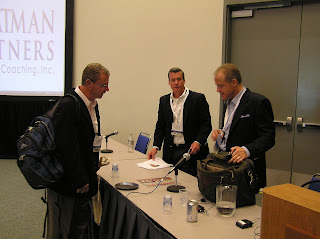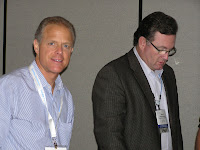I was at the NSC conference in San Diego last week and someone approached me with a question regarding the critically important skill of listening. It seems this executive has been struggling with this skill herself and has noticed that her team has the same challenge. In her case, she was courageous enough to describe a costly mistake that she personally attributed to poor listening.
“It is hard to listen when your lips are moving.” Many of us were lucky enough to hear these words of wisdom (or something close to them) early in our careers. They speak directly to the all important issue of listening. Listening is without question the most important leadership skill and it should represent +80% of your communication.
When some senior executives think about communication, they have visions of standing at the podium for the big meeting or presenting to the board, financial analysts, or any number of other important groups. In these forums, the executive’s speaking abilities are showcased. “Wow she can really captivate the crowd” or “He can really think on his feet”. These are great compliments; but there are better ones like: “she asks great questions” or “he listens to my every word and makes me feel like I’m the most important person in the world”.
Great leaders recognize the power of their silence. They live to ask good questions and listen intently. They also understand the deep impact listening has on every individual they encounter. They know that great listening defines great leadership.
Listening skills can be learned. They relate closely to understanding and honoring your role as a leader. Great leaders are great coaches. A leader’s role is to help the team get to the best answer…not come up with the answer. When the leader forgets this, you can be assured that lips are moving more than they should. Unintentionally, the leader has abandoned being a coach and in the process, confused his/her people.
You can read books, look at videos, go to seminars and use other learning aids to improve your listening skills. Here is another simple tactic. When your lips are moving, ask yourself if you are being a player or a coach and remember the power of your silence.









